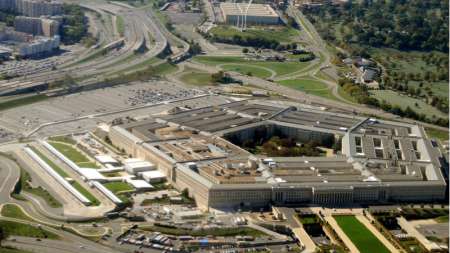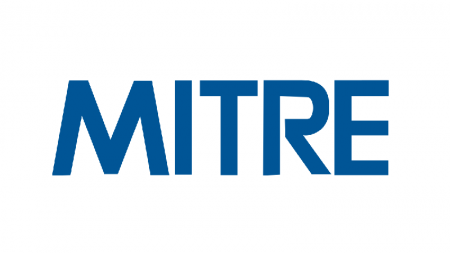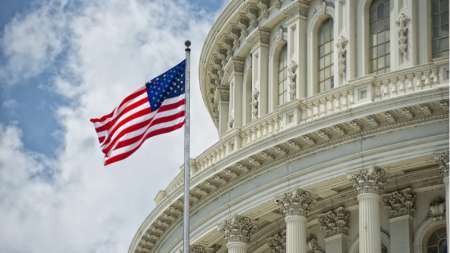The Department of Homeland Security (DHS) has tapped Michael Boyce to lead its AI Corps, which the agency established back in February. […]
The Defense Counterintelligence and Security Agency (DCSA) – which performs most of the Federal government’s security vetting tasks – is looking to expand the process of continuous vetting across the Federal government later this year while also exploring the integration of artificial intelligence (AI) technologies into that process. […]
The Pentagon’s administrative and management support agency has developed and will soon implement a customer experience (CX) management plan, an agency official said on Tuesday. […]
The Defense Information Systems Agency (DISA) reached a new milestone in its classified cloud effort by migrating more than 300,000 Department of Defense (DoD) users into the new secret environment, the agency announced via LinkedIn on April 22. […]
The Pentagon has launched a new fully operational program that allows independent “ethical hackers” to find and analyze vulnerabilities in military contractor networks with the aim of improving the cybersecurity posture of the defense industrial base (DIB). […]
The Government Accountability Office (GAO) is calling on two Federal agencies in charge of overseeing the implementation of President Biden’s 2021 cybersecurity executive order (EO) to fully complete the remaining five requirements tasked to them in the order. […]
From poor user satisfaction to integration challenges, the Department of Defense’s (DoD) new multi-billion dollar electronic health record (EHR) system faces several barriers that affect its implementation and efficiency, according to a new Government Accountability Office (GAO) report. […]
Federal officials on Thursday shared that the recent explosion of interest in AI technologies is also fueling better data management across the Federal government, and emphasized that you can’t have one without the other. […]
The Defense Intelligence Agency (DIA) has been slowly identifying areas within its enterprise that would benefit from automation and other artificial intelligence-enabled improvements, but bringing those ideas to fruition will be a challenge, the agency’s finance chief said this week. […]
The Cybersecurity and Infrastructure Security Agency (CISA), FBI, and the Office of the Director of National Intelligence (ODNI) issued guidance on Wednesday that details how to protect election infrastructure from foreign malign influence operations. […]
While a total ban on ransom payments to hackers remains “the ultimate goal” for cybersecurity experts, critical infrastructure organizations need stronger cybersecurity resilience before that happens, former acting National Cyber Director Kemba Walden told lawmakers on April 16. […]
The head of the Cybersecurity and Infrastructure Security Agency (CISA) said today that the Federal government has a “powerful” ability to mandate security standards for software vendors through its procurement process. […]
A group of industry experts called on Congress this week to enforce minimum cybersecurity standards among healthcare organizations in light of the February ransomware attack on UnitedHealth subsidiary Change Healthcare. […]
As artificial intelligence technologies continue to rapidly evolve, Federal agencies are looking to upskill their AI workforce to keep pace with emerging cybersecurity threats. […]
The former policy lead for the Department of Defense (DoD) under President Barack Obama said Tuesday that while the Biden administration’s National Cybersecurity Strategy (NCS) calls for secure-by-design technology principles, the White House doesn’t actually have the authority to regulate that. […]
In its first markup in 31 years, the House Administration Modernization Subcommittee voted Thursday to approve the Modernizing the Congressional Research Service’s (CRS) Access to Data Act. […]
A new bill introduced in the House and Senate is looking to designate a principal quantum advisor to the secretary of Defense to “supercharge” the Pentagon’s approach to quantum technology. […]
House and Senate committee leaders on Sunday evening unveiled a discussion draft of their latest effort to create a national data privacy law via the American Privacy Rights Act of 2024, which notably features provisions that would allow people to opt out of the use of their data for creating algorithms that could impact a host of major life decisions. […]
Officials from the Department of Energy (DoE) and cloud security provider Zscaler said that having a secure zero trust architecture (ZTA) in place can help agencies be prepared for cyber threats related to generative AI. […]
Federal Chief Information Security Officer (CISO) Chris DeRusha gave broad credit today to Federal agencies for making marked improvements in cybersecurity over the past few years, and cited the ability of one larger agency – which he did not name – with being able to take particularly quick action in the face of the Ivanti vulnerabilities that the government began warning about in January. […]
The Department of Defense (DoD) and Department of Veteran Affairs (VA) are at various stages of modernizing financial management processes but face similar challenges with legacy systems and data compatibility. […]
While practical employment of quantum computing remains out of reach for the time being, a National Security Agency (NSA) said this week that industry and government must work closely together to lay the groundwork for quantum capabilities to be easily adopted when the time comes for widescale deployment. […]
The Department of Homeland Security’s (DHS) Cyber Safety Review Board (CSRB) released findings late Tuesday following its independent review of the summer 2023 Microsoft Exchange Online intrusion that attributed the success of the China-based hack to “a cascade of security failures at Microsoft” and an “inadequate” security culture at the company. […]
The United States and the United Kingdom signed a landmark agreement on Monday to collaborate on testing artificial intelligence models, becoming the first two countries to formally work together on AI safety. […]
The Defense Department, General Services Administration, and NASA have issued a final rule amending the Federal Acquisition Regulation (FAR) to add the framework for a new FAR part 40 covering information security and supply chain security. […]
2024 was the first year that artificial intelligence (AI) appeared on the National Association of State Chief Information Officers’ (NASCIO) list of top priorities for state CIOs. Also for the first time ever, digital government services and cybersecurity tied for the top priority spot. […]
Sen. Mark Warner, D-Va., and Reps. Donald Beyer, D-Va., and Gerry Connolly, D-Va., joined MITRE this week at the grand opening of the company’s AI Assurance and Discovery Lab. […]
A new report from the Treasury Department on how the financial services sector is approaching managing AI-driven cybersecurity risks reveals challenges familiar to many sectors – think workforce, data quality, and funding. But one that stands out from the rest gets down to the very basic level of understanding those risks: reaching broad agreement on what artificial intelligence means, and adopting common terms that will allow for greater understanding of the technology. […]
The Department of Homeland Security’s (DHS) Cybersecurity and Infrastructure Security Agency (CISA) published its long-awaited cyber incident reporting rule today for the Cyber Incident Reporting for Critical Infrastructure Act (CIRCIA), requesting public input on the forthcoming regulations. […]
As government agencies around the world rapidly adopt modernized technological capabilities, a new report from Deloitte argues that the convergence of these technologies is making it possible for governments to realize outsized improvements in service delivery. […]





























